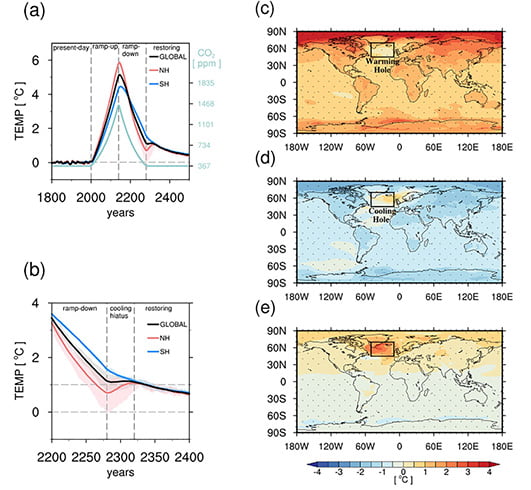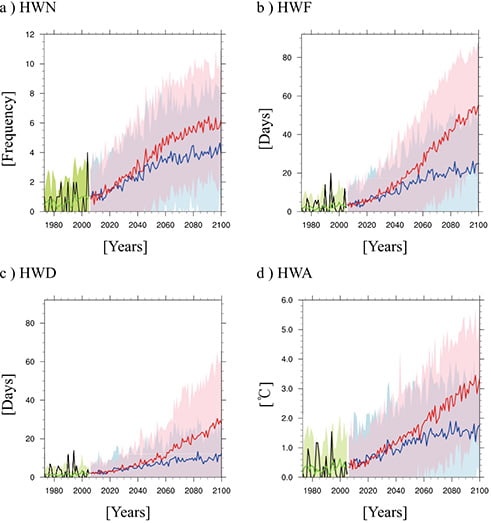EXTRA-TROPICS
Atlantic Meridional Overturning Circulation(AMOC)

The reversibility of global mean surface temperature was examined by a transient CO2
reversibility experiment using an Earth system model. The results showed that after
CO2 ramp-up toward CO2 quadrupling and ramp-down returned to the present-day
level, the global mean surface temperature kept decreasing but stopped to change for
∼40 years in the early net-zero CO2 emission period. This period, referred to a cooling
hiatus, resulted from a compensation between Southern Hemisphere cooling and
Northern Hemisphere warming. The Northern Hemisphere warming was centered over
the North Atlantic. This localized warming was caused by an excessive heat advection
by a delayed and surpassed Atlantic Meridional Overturning Circulation (AMOC) to CO2
forcing. During the progression of CO2change, the meridional salinity gradient between
subtropic and subpolar regions was enhanced, and the oceanic stratification in
subpolar North Atlantic was reduced due to accumulated heat and reduced vertical salt
import in the deeper ocean. As AMOC started to recover, consequently, the enhanced
salt advection feedback and the relaxed buoyant force resulted in AMOC overshoot.
(An et al., 2021)
